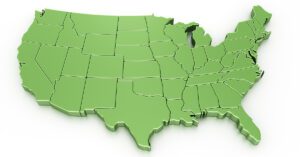Creating a lease agreement within the cannabis industry is unlike any other lease agreement out there…

Cannabis lease agreements need to be very specific.
Razones para considerar Casino Neo Formosa como tu opción principal
Si estás buscando una experiencia de juego emocionante y de alta calidad, no busques más allá de Casino Neo Formosa. Con una amplia gama de juegos, promociones emocionantes y un ambiente seguro y confiable, este casino en línea es la opción perfecta para los entusiastas del juego en Argentina. En este artículo, exploraremos las razones por las cuales deberías considerar a Casino Neo Formosa como tu opción principal para disfrutar de juegos de casino en línea.
1. Variedad de juegos emocionantes
Casino Neo Formosa ofrece una amplia variedad de juegos emocionantes para satisfacer todos los gustos y preferencias. Desde las clásicas máquinas tragamonedas hasta los juegos de mesa más populares como el blackjack y la ruleta, aquí encontrarás una amplia selección de opciones para disfrutar. Además, el casino también ofrece juegos en vivo, donde podrás interactuar con crupieres reales y disfrutar de una experiencia de casino auténtica desde la comodidad de tu hogar.
2. Promociones y bonificaciones
En Casino Neo Formosa, las promociones y bonificaciones son una parte integral de la experiencia de juego. El casino ofrece una variedad de promociones emocionantes que incluyen bonos de bienvenida, bonos de depósito, giros gratis y mucho más. Estas promociones te brindan la oportunidad de aumentar tus ganancias y disfrutar de una experiencia de juego aún más gratificante. Además, el casino también ofrece un programa de lealtad que recompensa a los jugadores frecuentes con beneficios exclusivos.
3. Seguridad y confiabilidad
Cuando se trata de jugar en línea, la seguridad y confiabilidad son aspectos fundamentales. Casino Neo Formosa se enorgullece de ofrecer a sus jugadores un entorno de juego seguro y confiable. El casino cuenta con licencia y está regulado por las autoridades pertinentes, lo que garantiza que cumple con los estándares más altos de seguridad y protección de datos. Además, utiliza tecnología de encriptación avanzada para garantizar que tus datos personales y financieros estén protegidos en todo momento.
Además de estas razones, Casino Neo Formosa también ofrece una interfaz de usuario fácil de usar, pagos rápidos y opciones de atención al cliente confiables. El casino está disponible tanto en versiones de escritorio como móviles, lo que te permite disfrutar de tus juegos favoritos en cualquier momento y lugar.
En resumen, Casino Neo Formosa es una excelente opción para aquellos que buscan una experiencia de juego en línea emocionante y confiable. Con su amplia selección de juegos, promociones emocionantes y un entorno seguro, este casino en línea cumple con todos los requisitos para brindarte una experiencia de juego de alta calidad. No esperes más y leer más aquí para descubrir todo lo que Casino Neo Formosa tiene para ofrecerte.
¡Regístrate hoy mismo y comienza a disfrutar de la emoción y las ganancias en Casino Neo Formosa!
With a few of the key ingredients in this blog you can better follow best business practices for an increased chance at long-term success. These considerations for the cannabis industry are separate from baseline commercial lease agreements, which can be complex and run into dozens of pages.
While a lease may appear to be a more cost-effective and lower risk route, we will often find that owning the property instead can end up being less hassle and more security.
For example, if you break your lease without legitimate reason, then a landlord can sue you for the remainder of the lease rent. Often, when you search for cannabis real estate property, the rents will be increasingly higher due to the extra risk.
8 things to remember for a cannabis lease agreement
Please consider these important steps when creating your lease agreements.
Securing a property is one of the most important milestones of a legitimate business, but it is important to get the lease correct for cannabis zoning or else you will find yourself with many headaches later. Most importantly, make sure your paperwork is pristine and organized. Have a real estate attorney on call to look over your documents for you to ensure you have the best agreement possible for your investment.
1. Go For Full Disclosure In The Lease Agreement
Make sure your landlord is absolutely clear on their legal obligations and responsibilities.
Don’t settle for vague language such as “horticulture” or “medical services” if your property is being used for cannabis cultivation. Masking the actual use of the agreement would make it difficult to apply or renew licenses, because most licensing agencies require copies of agreements stating specific language that landlord is permitting cultivation.
2. Do A Thorough Background Check On The Landlord
It pays off to be diligent when entering into cannabis lease agreements.
Use public records to check up on the landlord’s financial background, that the name on the lease matches the name on the property. Make sure the landlord actually has full rights to the property. Consult with a real estate attorney to check the title on the property and making sure the corporation is in good standing.
3. Negotiate Flexible Lease Terms
In the event that the property appreciates in value, it is wise to ensure the option to purchase the property at the end of the lease agreement.
This will protect your business from having to relocate plants or inventory which could disrupt your business tremendously. Securing the right of first refusal can give you the option to help you work with real estate agents and figure out a fair market value based on similar sales in the surrounding area.
4. Do Your Research On Zoning Laws
Best practice is to know your zoning and make sure you know what the local ordinance requirements are for a greenhouse, agricultural land or an industrial zone.
For example, in Denver, zoning laws require any cannabis business property to be 1,000 feet away from any schools, day cares, parks, or residential areas. This could affect future growth or expansion of the business if the zoning stated “medical use only” and you wanted to expand cultivation. Working with a professional who already understands the zoning is a far better option than reading it yourself. But take your time to read through the regulations, since they will be the backbone of many of your next decisions.
5. Be Professional, Or Hire Someone Who Is. (Like Us!)
It’s wise to look like you mean business when negotiating a cannabis commercial lease.
Presenting yourself in a professional way will garner respect as you move forward. If you don’t know what you’re doing or talking about, you could easily be taken advantage of. Please help us eliminate the attitude or preconceived notion that this business is just for lazy stoners. Working with a company like ours that have professional cannabis consultants on call will present your business in the best light.
6. Have a Detailed, Complete, And Reasonable Business Plan
Landlords will inherently be wary of renting to anyone in this industry because of the obvious federal risks. Allowing investors to view the potential profits or business value helps to compensate for the risks involved. A detailed business plan will help get you one step closer to a legitimate cannabis lease agreement.
7. Make A Checklist Of Everything You’ll Need For The Space
Having facility requirements on-hand after thoroughly inspecting the space helps landlords take you more seriously. A broker can help navigate through all potential hurdles and problems with a property. This will also help you with budgeting and a fast setup to start generating revenue faster.
8. Negotiate Convenient Start Dates
You’ll want to have time to prepare the property for build-out costs on any requirements for the license before rent payments begin. You don’t want to end up paying for utilizing a space without even being operational yet. This could put a huge financial burden on your business with no profit coming in. Figuring out a timeline for when you are open for business, and then negotiating move-in dates is the smartest move.
 We can help with all your cannabis lease agreement needs!
We can help with all your cannabis lease agreement needs!
Our team of professional consultants for the cannabis industry can help you accomplish your goals by establishing an effective lease agreement for your cannabis business. Work with WeCann our cannabis licensing consultants in California team.
We specialize in finding properties that are zoned for cannabis use and look forward to your questions or comments.
If you have anything else to add, please put in the comments below.
Contact us to get started finding the right property for your business.


 We can help with all your cannabis lease agreement needs!
We can help with all your cannabis lease agreement needs!


